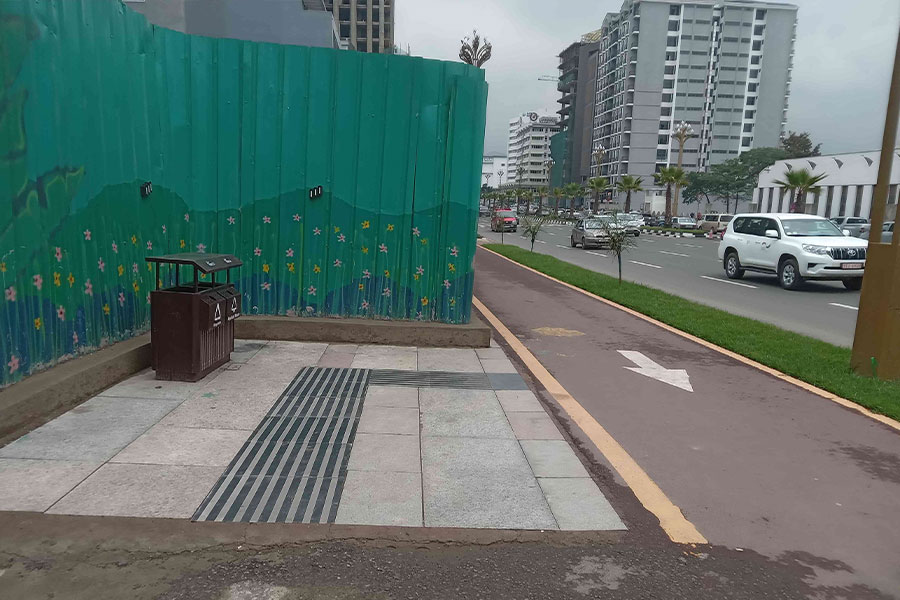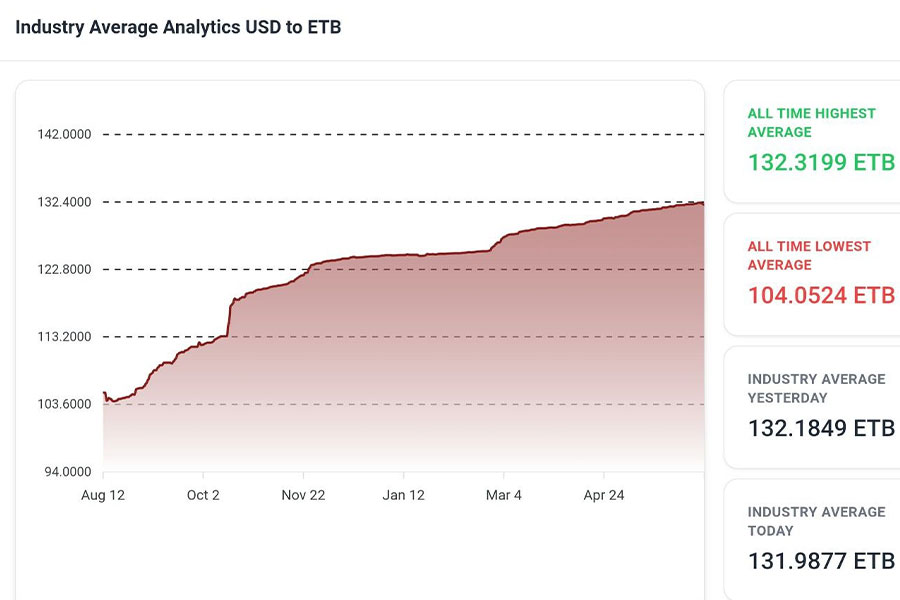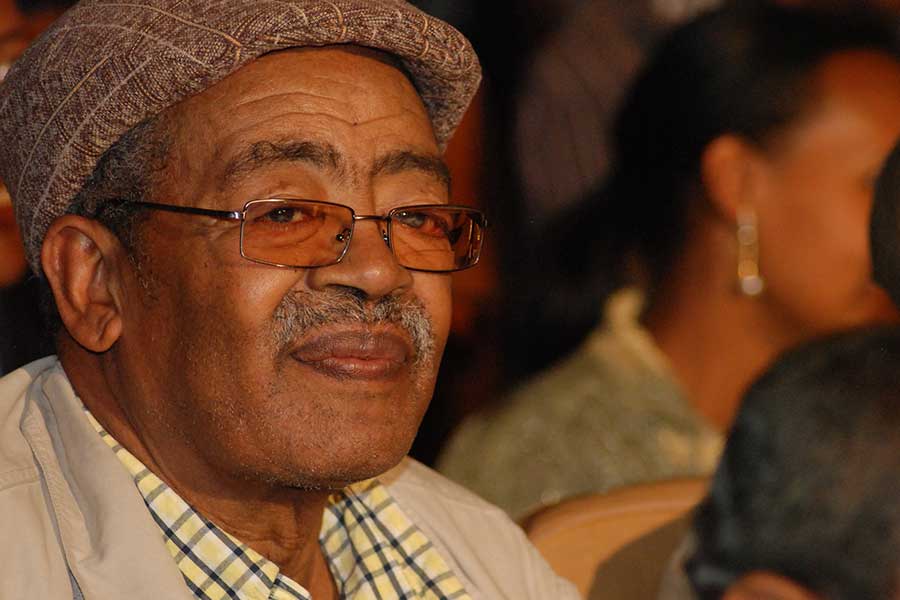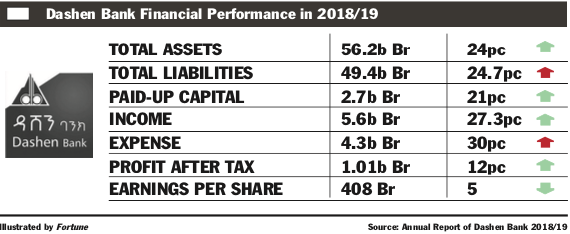
A lot of work goes into making a simple shirt, pants or a bag in a textile factory. The various people involved between the initial stage and the end product all have their own distinct roles in this sequential process.
During the manufacturing of a fishing bag, where one 19-year-old works as a line supervisor in Bole Lemi Industrial Park, it goes through the hands of multiple workers before it is finished.
"By the time it reaches me for inspection," said the employee at Shin Textile Solutions, a Korean textile factory with 4,500 employees in the Park, "it may have been stitched, cut and layered by 50 different people."
She was going about her daily work, overseeing the workflow in her line and giving guidance when she received a call a few days ago. It was from the company's nurse, which had facilitated the Novel Coronavirus (COVID-19) sample test from the employees following the first confirmed cases in the Park in mid-July.
She was informed her test had come back positive and was told to quickly pack a few items and prepare to go to the treatment centre located at a high school in Tulu Dimtu.
"I had requested to be tested after the first tests from some employees in the Park came back positive," said the employee who has been working in the Park for almost a year and a half. "I went to my dormitory and hastily packed my things."
She and 10 other employees from the Park were transported in an ambulance to the treatment centre.
Her dormitory, built by the company, is located inside the Park. Normally, it houses 16 people. But with her gone, they are down to 12, all for the same reason.
"It worries me that I'm expected to go back to work when I finish treatment," said the employee, who is now receiving care at Tulu Dimtu. "I don't have any guarantee that I won't catch it once again."
The company has announced that it will be continuing work despite what is going on, according to her.
But with more test results coming in positive for the virus, employees are eager to get tested. However, the company's nurse stopped taking more names after a certain point, according to the employee.
Another employee in the company, a friend of hers and dorm mate, has been trying to get tested but has been told to wait on three occasions.
"Everyone wants to be tested, because we all live together," she said.
The dormitory, while spacious, is very communal, with bunk beds and a shared toilet for dorm mates.
COVID-19 tests across banks in the city have revealed confirmed cases that have led to the shut down of some branches for disinfection.
"When three of my friends tested positive, I knew I had to get tested," she said. Quickly after, she started developing symptoms herself.
"I have difficulty breathing," she said. "I am coughing, and I feel exhausted all the time."
But the Park clinic sent her back with a painkiller on more than one occasion, and she has continued work as usual. Upon the advice of the health professionals in the Park, she started drinking hot beverages with ginger and garlic to alleviate the cough.
"I want to get tested and get treatment," she said. "But we've been told that unless it is a severe case, they will not be sending the samples."
Industrial parks in the country employ close to 95,000 people with Bole Lemi accounting for 18,000 of that number.
The Park had been identified as one of the places to pay close attention to at the onset of the pandemic, according to Seharla Abdullahi, state minister for Health.
"This was because it had a dormitory where the employees live together," she said. "We set up referral clinics around the Park to minimise travelling and broadening contact."
But the claims that the Park's clinic has been overwhelmed with requests for testing comes as no surprise.
"COVID-19 facilities set up by the government are reaching a similar stage," the State Minister said. "This, among other reasons, is why there were amendments in the State of Emergency regulation."
As of June 21, the Ministry of Health announced that individuals suspected for COVID-19 or who tested positive with mild or no symptoms will be asked to self-isolate at home if they have the resources, the support, are willing, and fulfill the criteria.
This also helps avoid the psychological impact of separation from family while staying at a treatment centre, according to the State Minister.
"If you have someone who can take care of you, then it's better that you don't come to the treatment centre at all," Seharla said. "Almost 80pc of the patients at the Millennium Hall Treatment Centre are asymptomatic."
With COVID-19 cases increasing every day at a rapid rate and most cases centred in Addis Abeba, the Ministry has turned to assign the cases to the City Administration.
"Initially, it was just the Public Health Emergency Operations Centre overseeing the response to COVID-19," Seharla said. "But the City Administration is now involved in contact tracing and testing across Addis."
The City Administration is expected to begin fully handling all COVID-19 responses for the city, according to her.
Additionally, the Ministry has also launched Dubo Software, a contact tracing application able to detect people in a 50m radius. Invented here locally with the support of the Information Network Security Agency (INSA), it was inaugurated last month and is slowly garnering users.
"It does have its limitations, however," she said, "the main one being that it depends on the goodwill of the person using it."
It is not just industrial parks that fall under the high risk category but sectors that engage with lots of people, with banks being a prime example.
Dashen, Abyssinia, Wegagen and Commercial Bank of Ethiopia are among the banks that have briefly closed their branches for disinfection due to employees testing positive for the virus.
Perhaps it was with this in mind that health professionals from the Ministry of Health arbitrarily requested samples nearly two weeks ago on the premises of the Awash Bank headquarters located in Mexico.
"They were taking samples from willing individuals who were going in or out of the building," said Anteneh Derese, a senior legal attorney at the Bank. "As it turns out, one of my colleagues' results came back positive."
The employees contact traced among themselves and relayed their contact information to the health officials, according to Anteneh.
"I received a call from them a day later," he said. "They confirmed the situation and informed me that I would get a follow-up call regarding this."
The follow-up call has yet to come, two weeks later.
Anteneh and his colleagues, however, took matters into their own hands and started looking for hospitals where COVID-19 testing was available. But only two employees, including himself, were able to get tested, according to Anteneh.
"My results have come back negative luckily," he said, "but no one has tested the others."
Social distancing, wearing masks and washing hands regularly should be a mantra, advises Dawit Seblework, president of the Ethiopian Occupational Safety & Health Professionals Association.
"How we're wearing our masks is also very crucial," he said. "Covering just our mouths, as countless people do for instance, isn't going to work."
Working in shifts is another commendable approach in ensuring that a workplace is safe, according to him.
For industrial parks and factories that are using a lot of machinery, maintaining social distancing rules for employees might be trickier since the design of the place was created using standard procedures.
"Changing the method of operation will require dismantling the whole factory," he said. "In these situations, it is important to ensure the observance of mask wearing and using sanitiser."
The use of sanitiser should not be limited to people but on all common contact surfaces, according to Dawit.
As of August 1, 2020, the country had conducted close to 429,712 tests and the confirmed cases reached 17,999.
With new daily positive cases nearing 1,000, the State Minister stressed that there needs to be more personal commitment.
"There were initial encouraging strides that were taken by the community in March," she said. "But when the Easter holiday came around, we saw everything had fallen back to business as usual."
After the recent protests that followed the death of Afaan Oromo singer Hachalu Hundessa on June 29, 2020, the Ministry of Health had to reassess the previous predictions for the peak of COVID-19 in the country, according to the State Minister.
"We'd initially predicted the months of August and September as when the virus will be most prevalent," she said. "This is no longer the case because of all the protests that have been happening."
Along with the reassessment, the Ministry is also planning on starting a mass testing campaign in August that will include between 30pc to 50pc of the population, according to the State Minister.
When it comes to workplace safety, especially with regard to COVID-19, the main onus lies on the government as far as ensuring strict observance is concerned, according to the workplace health and safety expert.
"This is the health of citizens and is not something we choose to do," he said. "It is a legal responsibility."
Anteneh is now back to work and has rejoined his colleagues who are clueless about their status. He wears his mask diligently and uses sanitiser, careful to keep his distance when interacting with others.
PUBLISHED ON
Aug 01,2020 [ VOL
21 , NO
1057]

In-Picture | May 24,2025

My Opinion | Jan 21,2023

Covid-19 | Apr 03,2020

Radar | Oct 22,2022

Money Market Watch | Jun 15,2025

Radar | Aug 10,2019

Radar | Jun 07,2020

Obituary | Oct 12,2019

Fortune News | Feb 15,2020

Radar | Aug 08,2020

Dec 22 , 2024 . By TIZITA SHEWAFERAW
Charged with transforming colossal state-owned enterprises into modern and competitiv...

Aug 18 , 2024 . By AKSAH ITALO
Although predictable Yonas Zerihun's job in the ride-hailing service is not immune to...

Jul 28 , 2024 . By TIZITA SHEWAFERAW
Unhabitual, perhaps too many, Samuel Gebreyohannes, 38, used to occasionally enjoy a couple of beers at breakfast. However, he recently swit...

Jul 13 , 2024 . By AKSAH ITALO
Investors who rely on tractors, trucks, and field vehicles for commuting, transporting commodities, and f...

Oct 18 , 2025
The political establishment, notably the ruling party and its top brass, has become p...

Oct 11 , 2025
Ladislas Farago, a roving Associated Press (AP) correspondent, arrived in Ethiopia in...

Oct 4 , 2025
Eyob Tekalegn (PhD) had been in the Governor's chair for only weeks when, on Septembe...

Sep 27 , 2025
Four years into an experiment with “shock therapy” in education, the national moo...